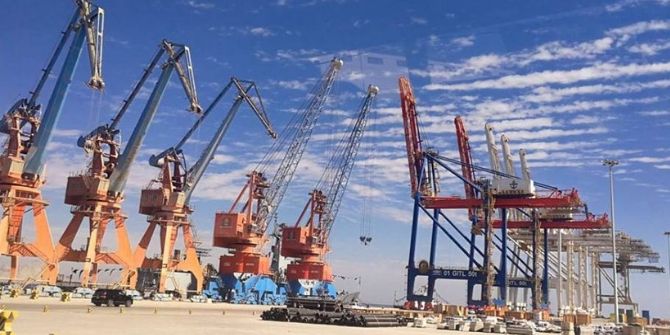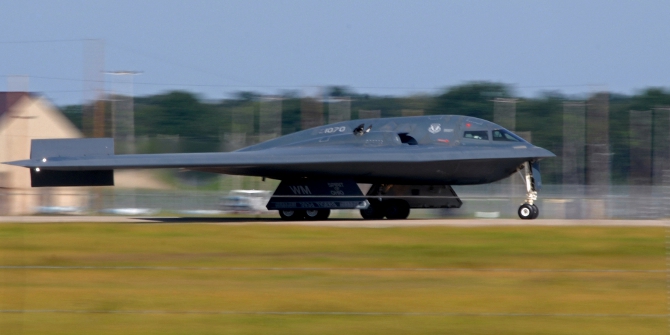 This week, French President Emmanuel Macron joins President Joe Biden in Washington DC for the first state visit of Biden’s presidency. Phelan US Centre Director, Professor Peter Trubowitz writes that three key issues will likely dominate their discussions: Ukraine, trade, and China.
This week, French President Emmanuel Macron joins President Joe Biden in Washington DC for the first state visit of Biden’s presidency. Phelan US Centre Director, Professor Peter Trubowitz writes that three key issues will likely dominate their discussions: Ukraine, trade, and China.
This week, President Biden is hosting French President Emmanuel Macron in the first formal visit from a head of state to the US since Biden took office in January 2021. As the two leaders meet, it’s worth remembering that France is America’s oldest ally, meaning there’s a lot of history in the relationship, including many ups and some downs.
Why is Macron Biden’s first state visit?
Biden sees the visit as a way of underscoring the importance Washington is attaching to Europe and transatlantic unity at a time of great turbulence in world politics. Given the administration’s heavy focus on China and East Asia, it’s notable that a European ally got the first nod for a state visit. When it comes to Europe, Biden also needs a reliable intermediary to negotiate out differences on Ukraine, China, and other matters. Macron is Biden’s best bet given widespread doubts about political leadership in Britain, Germany, and Italy. The hope in Washington is that Macron, who cannot run for re-election in France when his term expires in five years, will have more flexibility politically to work with the US.
What are the key issues separating Biden and Macron?
Three main issues will likely dominate the discussions between the two leaders: Ukraine, trade, and China.
On Ukraine, Biden faces mounting resistance from Republicans about giving a “blank check” to Kyiv. Macron and other European leaders face domestic opposition due to soaring energy prices caused by the war. Washington is looking for a larger military commitment from Europe; Europe is reeling from the high cost of US liquid natural gas exports, which have surged due to the cancellation of Russian deliveries.
On trade, tensions are intensifying over Biden’s Inflation Reduction Act, which offers billions in tax credits for Americans to buy electric vehicles manufactured in North America. Macron and other European leaders claim that this policy discriminates against the EU electric vehicle manufacturers and other clean industries. Biden and Democrats in Congress argue that the subsidies are necessary to incentivize US businesses to go green.
Last but not least, is how best to deal with China’s growing power and assertiveness. Biden wants Europe to close ranks against Beijing’s policies on trade, technology, and Taiwan. Macron is touting a “third way” between Beijing and Washington, arguing that the world can’t afford another Cold War, especially given China’s enormous role in the world economy.

“P20211028ES-0546” by The White House is United States government work
What should we expect from Macron’s visit?
The visit is unlikely to produce real deliverables, but it won’t be all pomp and pageantry. I would expect some progress on narrowing differences over Ukraine. There may also be some room for a deal on trade and China down the road, with Biden offering Macron follow on negotiations over whether to give European companies some access to Biden’s subsidies in return for Paris toeing a tougher line on China in deliberations with Berlin and other European capitals.
- This article is based on an interview with Bloomberg Surveillance on 1 December 2022; Professor Trubowitz’s comments begin at 1:16:45.
- Please read our comments policy before commenting
- Note: This article gives the views of the author, and not the position of USAPP– American Politics and Policy, nor of the London School of Economics.
- Shortened URL for this post: https://bit.ly/3FjdIJp






